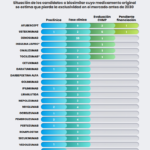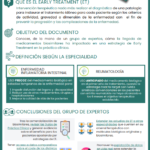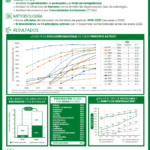The study titled 'Multiple switches from infliximab biosimilars appear to be safe and effective in a real-world inflammatory bowel disease cohort' investigated the safety and effectiveness of making multiple successive switches from infliximab (IFX) to biosimilars in patients with inflammatory bowel disease ( IBD).
Infliximab is a widely used treatment for IBD, and IFX biosimilars have become common to reduce costs. This study was carried out at the Edinburgh IBD Unit and assessed the persistence of CT-P13 after switching from SB2, a biosimilar of IFX. In addition, the effectiveness and safety of this practice were analyzed.
297 IBD patients who were switched from SB2 to CT-P13 were included. These patients were followed for a period of 7.5 months on average. It was observed that 90.6% of patients remained on CT-P13 treatment during this period, indicating high drug persistence.
The study also stratified patients according to the number of successive changes they had experienced. Some patients had had a single switch, others two, and some even three successive switches from IFX to biosimilars. However, no significant differences in medication persistence were found between these groups.
In addition to medication persistence, clinical, biochemical, and fecal biomarker remission rates were assessed at different time points (baseline, 12 weeks, and 24 weeks). The results showed that these indices remained comparable over time, regardless of the number of successive changes.
In summary, this study suggests that making multiple successive switches from IFX to biosimilars is safe and effective in patients with IBD. High medication persistence and stable remission rates support this practice. These findings are particularly relevant in the context of cost reduction in IBD treatment and may have a positive impact on access to healthcare worldwide.



